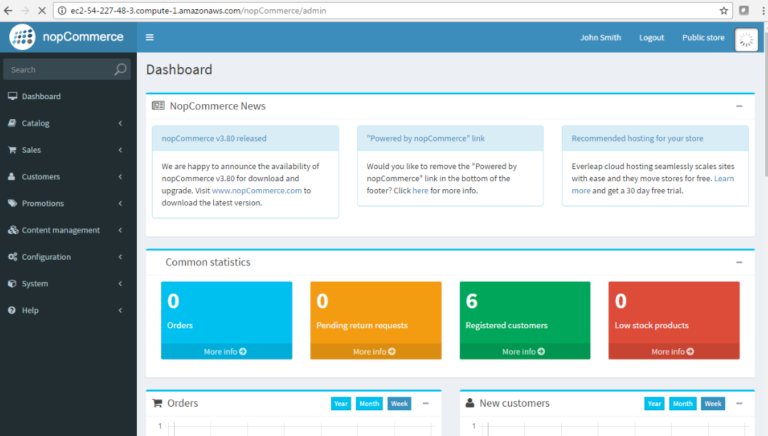A parked domain is a registered name that is not associated with any website or web content. Instead of hosting a website or directing visitors to specific content, such a domain primarily serves as a placeholder or virtual signpost.
When registering a domain, it’s important to configure it correctly: for hosting a website with unique content, pointing to an existing site, or parking it. This means you are not actively using it to create a website or email services but temporarily reserving it for future use or preventing others from using the name.
The Purpose of Parked Domains
Now that we have a basic understanding of what parked domains are, let’s explore their purposes:
- Reserving for Future Use: One common reason is reserving a domain for future use. You might have a business idea, project, or product in development, and you want to secure a specific name before someone else does. This procedure allows you to maintain ownership and control, even if you haven’t created a website yet;
- Brand Protection: In the competitive online landscape, brand protection is crucial. Parking domains similar to your primary one can prevent others from using them to create confusion or divert traffic from your site. This practice is especially relevant for well-established companies;
- Monetization: Some individuals and companies use this process as a monetization strategy. They register domain names expected to generate traffic based on keywords or trends. Advertisements can be placed on such domains, and the domain owner earns revenue when visitors click on these ads. While this method can generate income, it’s not as common as before due to changes in search engine algorithms and advertising practices.
How Parked Domains Impact SEO
Now that we’ve covered the definition and purposes of parked domains, let’s delve into how they can affect your website’s SEO (Search Engine Optimization). SEO is crucial for improving your site’s visibility on Search Engine Results Pages (SERPs) and attracting organic traffic.
- Duplicate Content Issues: One of the main SEO problems associated with parked domains is the potential for duplicate content. Often, a standard landing page provided by the domain registrar or hosting provider is displayed, which is generic and lacks unique content. Search engines may interpret this as content duplication, negatively affecting your SEO ranking. To mitigate this, consider implementing a 301 redirect to direct these domains to your main site, indicating to search engines that they are not separate indexable entities;
- Loss of Organic Traffic: If you’ve parked a domain similar to your main domain, there’s a chance that some users may accidentally land on it instead of your primary page. This can result in a loss of organic traffic and confusion for potential customers. To reduce this risk, consider creating custom landing pages that redirect visitors to your main site or provide information about your brand;
- Backlink Authority: Backlinks, or inbound links from other websites, are a critical SEO factor. When you park a domain and it accumulates backlinks over time, these backlinks may not hold as much SEO value as if they were directed to your main site. To maximize the benefit of backlinks, consider redirecting parked domains to your primary site or using them to create microsites with unique and valuable content.
Best Practices for Managing Parked Domains:
Effective management is crucial to ensure parked domains do not negatively impact your SEO and online presence. Here are some best practices for managing parked domains:
- Proper Configuration: Use 301 (permanent) redirection. Set up a 301 redirect from parked domains to your main site or the relevant landing page. This communicates to search engines that the parked domain is not a separate, indexable entity but part of your main website;
- Custom Landing Pages: Create custom landing pages. Develop user-specific landing pages for parked domains. These pages should contain information about your brand and a clear call to action (CTA) that guides visitors to your main site;
- Consistency in Branding: Maintain consistency in branding, design, and messaging between your main website and the landing page of the parked domain;
- Regular Monitoring: Keep an eye on backlinks pointing to parked domains to ensure their high quality and relevance. Disavow any spammy or low-quality backlinks that could harm your SEO;
- Link Building (if applicable): Quality over quantity should be your focus when planning to use parked domains for marketing purposes. Concentrate on creating high-quality backlinks to enhance their authority;
- Content Development: Create valuable, unique content on the parked domain if it serves a specific marketing or advertising purpose;
- Content and SEO Optimization: Avoid content duplication; make sure the content on the parked domain doesn’t replicate the content of your main site or other parked domains;
- Meta Tags and SEO Elements: Optimize meta titles, descriptions, and header tags on the landing page of the parked domain for SEO, ensuring they are unique and relevant;
- Domain Renewal: Don’t forget to renew parked domains regularly to retain ownership rights and prevent others from registering them. Consider setting up auto-renewal if possible to avoid accidental lapses;
- Track Analytics: Use web analytics tools to monitor traffic and user interactions with the landing pages of parked domains. These data will help assess the effectiveness of your parked domain strategy;
- Evaluate Relevance: Conduct periodic reviews of parked domains to ensure they still serve their intended purposes. If a parked domain is no longer relevant, consider discontinuing it or redirecting it to a more suitable location;
- Legal Aspects: When using parked domains, be mindful of trademark and copyright issues. Avoid using domain names that infringe on the intellectual property rights of others;
- Privacy and WHOIS Information: Consider using domain privacy services to shield your personal information from public WHOIS records, reducing the risk of spam and unwanted solicitations;
- Stay Informed: Keep up with the latest SEO trends, search engine algorithms, and best practices to adapt your parked domain strategy accordingly;
- Seek Professional Guidance: If you’re unsure about effectively managing parked domains, consult with SEO experts or web developers who can provide recommendations and assistance tailored to your specific needs.
By following these recommendations, you can ensure that parked domains not only fulfill their functions but also contribute positively to your online presence and SEO efforts. Effective management of parked domains will help protect your brand, enhance the user experience, and improve your site’s rankings in search engines.
Conclusion
A parked domain is a registered domain name that is currently not associated with a website or web content. It serves various purposes, including brand protection, future use, and monetization. However, mismanagement of parked domains can have a negative impact on your site’s SEO.
By adhering to best practices such as proper configuration, creating custom landing pages, and regular monitoring, you can ensure that parked domains make a positive contribution to your online presence. Remember that SEO is a constantly evolving field, so staying informed about the latest trends and algorithms is crucial for maintaining and improving your site’s rankings in search engines.













